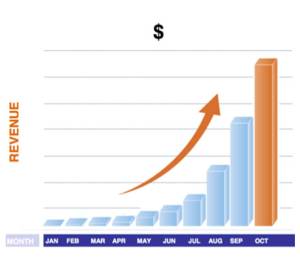
Digital music sales make case for the viability of virtual goods
A new study released by Jupiter Research suggests that digital music sales will offset physical cd sales losses by 2010. Here are the main conclusions and forecast provided by the study from paidcontent.org:
—EU/US/UK: Jupiter reckons only eight percent of online Europeans buy music on the net compared to 15 percent in the US. While digital makes up five percent of EU sales, it’s 13 percent in the US. But the UK will lead Europe, contributing 44 percent of all digital music revenue. In Europe, some 285 online stores are chasing 1.4 million euro ($2 million) annual revenues, but are getting far less thanks to iTunes Store’s dominance.
—Projection: A fifth of online Europeans will buy their music online by 2012, Jupiter reckons, making a quarter of all music sold digital.
US digital music sales growth has slowed while UK has almost doubled, but that’s after two years where the US digital music sales market has grown about 100% and 50% in 2006 and 2007, respectively. Digital music sales now represent about 10% of the overall music market in the US, but you have to keep in mind the strong presence of illegal file sharing.
You may ask yourself, where am I going with all this news and stat reporting? For lack of a better segue, the study gives more credence to the continued growth of virtual goods as a viable market. In my industry, virtual goods are essentially the backbone of most revenue models and without them the sites wouldn’t exist.
Still, many remain skeptical about virtual goods as something to invest in for the long run. Before I continue this discussion I’d like to establish a definition for “virtual good” :
A virtual good is an intangible good bought and sold over the internet that either provides a service, entertainment value, or enhances the experience of the purchaser in whatever interactive environment they’re operating in.
If anything, music is the ultimate virtual good. Music not only provides entertainment value but will enhance the user experience no matter what someone is doing. Essentially, music has always been a virtual good. Only the instruments and discs used to play it are tangible, the product itself isn’t.
With iPods, we have music at our fingertips in just about any situation. With the advent of smartphones, we have just about every thing at our fingertips. Email, maps, instant messenger are all available to us. It’s this idea of the Culture of Connectivity that explains why virtual goods are important and will continue to be more important. The more services that move into the intangible virtual world of the internet creates more room for the need of virtual goods.
The growth of digital music sales is just one arena where this marketplace continues to grow.
Chase Straight
Music Community Manager


